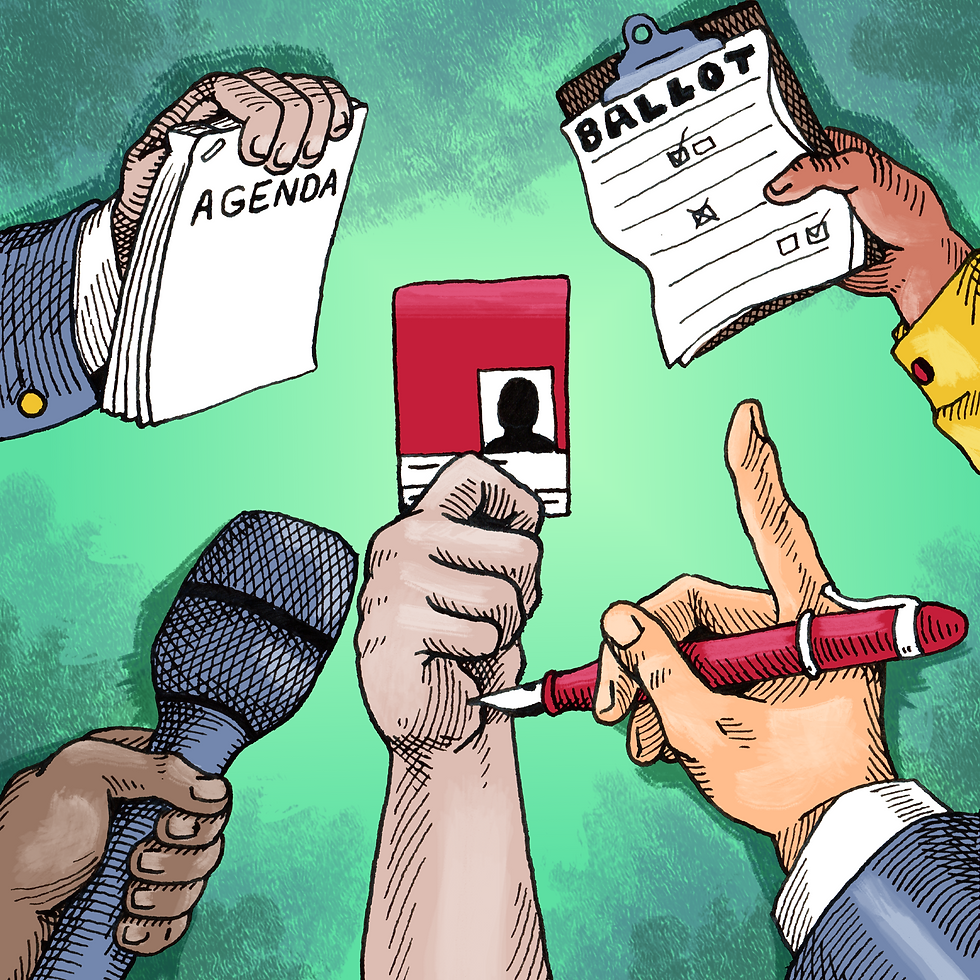Opinion: 'Spring forward,' more like 'fall back' on sleep: Why are we still practicing Daylight Savings?
- Mari Kauffman, Staff Writer
- Apr 5, 2024
- 3 min read
Updated: Apr 7, 2024

Extending the clock forward by one hour and losing that extra quantity of sleep in exchange for extra daylight in the evenings is absolutely ludicrous. Many believe the origin of DST (Daylight Savings Time) was “to give the farmers an extra hour of sunlight to till their fields.” However, this concept is inaccurate. In plain terms, farmers aren’t and haven't been affected by this annual time adjustment, nor are there other real benefits to the change. What does an extra hour added to the day accomplish? Nothing but more light in the evenings and a great deal of sleep deprivation.
After an unsuccessful proposal in 1895 by entomologist George Vernon Hudson that suggested there should be “an annual two-hour time shift to the Royal Society of New Zealand,” the first iteration of daylight savings was reduced to an hour and thirty minutes in 1907 and the first experimentation was held during WW1. However, the change was then revoked as people were conspiring about its usage as a wartime act. It wasn’t until 1966 that Congress passed the Uniform Act that standardized daylight savings.
However, not all countries and states were down with this practice. In 1967, Arizona settled on continuing with Standard Time and rejected DST, citing that the change extended summer activities into the evenings and affected people who had to work early in the mornings the following day.
Oregon itself had an approved bill by the Legislature that Oregon would become the first state to permanently be set on standard time, but the Oregon senators rejected the bill in February of 2024. Instead of waking up to a luminous sky as early as seven in the morning, Willamette students are walking to their classes, not fully conscious yet under a somewhat darkened sky. So why is adding more time in the day significant?
People get to do more activities in the evenings when the sun hasn’t set, but it still disrupts their sleep schedule. Having light or not does not have an impact on the time people have to do day-to-day activities — regardless of the sunset, people can choose to do or not do their evening obligations.
In contrast, losing sleep, even just one hour, is detrimental to students in particular. While there are energy drinks and coffee to get their blood pumping, these are not a very healthy stimulus and cannot replace the value of sleep. As such, there’s no real benefit to implementing this time adjustment.
Many Bearcats are negatively affected by DST. Avery Horton (‘27) mentioned how inconvenient DST is and how the time shift and lack of light in the morning affects their mental health. They believe that “it would be great if [DST] didn’t exist,” while mentioning that it's baseless in forming a rally of support behind it. Along with Horton’s opinion, Daniel Barnard (‘27) agreed that morning darkness makes him depressed and that extending the clock forward by one hour is completely unnecessary.
Complaints about DS are relevant due to possible change — according to an article in the digital paper Oregon Live, the bill that was previously rejected in February has now passed through the state Senate with the majority of the vote being 16-14; this changes everything. The article states, “[The bill] would only go into effect if California and Washington approve similar measures,” so again, people must wait until all of this very controversial time adjustment takes effect or not. Knowing that it took approximately 70 years for Hudson’s idea to be passed and now awaiting the results to see if Daylight Savings will finally be discarded by California and Washington’s decision, means it’s unpredictable when updates will be announced and what the eventual results are going to be.
So from now until Nov. 3, there will be more caffeine for the students and professors, more sunshine in the evenings and darkness in the mornings and the continuation of the ‘spring forward’ of the clocks. Students will gain that one hour of daylight at the expense of a regular sleep schedule — and perhaps their mental health — as Oregon awaits a decision on Daylight Savings.




Comments